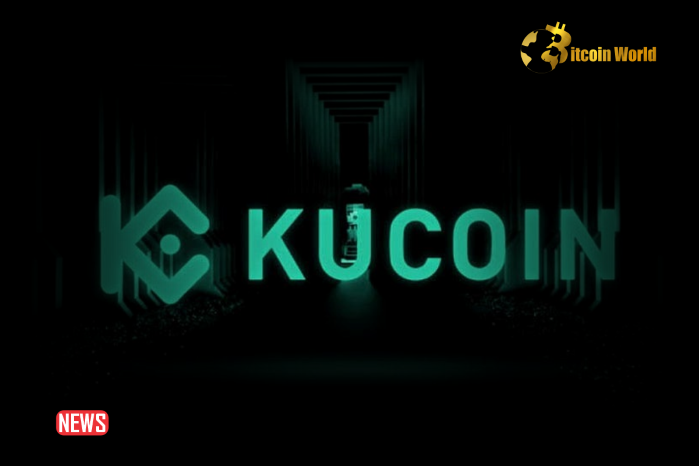Heads up, Nigerian crypto traders! Big changes are coming to KuCoin. Starting July 8th, a 7.5% Value-Added Tax (VAT) will be applied to all transaction fees for Nigerian users. This move signals a potential shift in Nigeria’s regulatory landscape for cryptocurrencies. Let’s dive into what this means for you.
Why is KuCoin Implementing This Tax?
KuCoin cited a “regulatory update” as the reason for this new tax. In an email to its Nigerian users and a subsequent announcement on their Africa-focused Twitter account, the exchange stated that the VAT will apply to “all transaction types on KuCoin platform.” This suggests a broader government initiative to regulate and tax digital asset transactions within Nigeria.
What Does This Mean for Nigerian KuCoin Users?
- Increased Transaction Costs: Expect to pay 7.5% more on all your KuCoin transactions.
- Wider Regulatory Implications: This could be the start of more comprehensive crypto regulations in Nigeria.
- Compliance Matters: Ensure your KYC (Know Your Customer) information is up-to-date and registered in Nigeria to avoid any disruptions.
Nigeria’s History with Crypto Taxes
This isn’t Nigeria’s first foray into taxing crypto. The 2023 Finance Act introduced a 10% capital gains tax on profits from digital asset disposals, including cryptocurrencies. However, a lack of clarity surrounding crypto’s legal status has posed challenges in enforcing this tax.
Is This Official Recognition for Crypto in Nigeria?
While the Securities and Exchange Commission (SEC) hasn’t commented directly on the new VAT, some experts believe this could signify an initial step toward officially recognizing the crypto sector in Nigeria. Taxing crypto transactions could legitimize the industry, potentially paving the way for clearer regulations and greater investor confidence.
Impact on Nigeria’s Crypto Market
Nigeria is a major player in the African crypto market. The SEC estimates the industry’s value at $400 million. This new VAT could have significant consequences:
- Investor Sentiment: The tax might impact investor confidence, potentially leading some traders to explore alternative platforms or markets.
- Market Dynamics: The increased cost of trading could affect trading volumes and overall market activity.
What’s Next for Crypto Regulation in Nigeria?
The Nigerian SEC recently directed crypto exchanges and digital asset traders to re-register their businesses within 30 days, signaling a push for greater regulatory oversight. This VAT implementation by KuCoin could be a part of a broader strategy to regulate digital asset trading in the country.
Key Takeaways
- KuCoin will start collecting a 7.5% VAT on all transaction types for Nigerian users from July 8th.
- This tax stems from a “regulatory update” and could indicate a shift in Nigeria’s approach to crypto regulation.
- The VAT may impact investor confidence and market dynamics within Nigeria’s burgeoning crypto industry.
Stay informed and adapt to these changes as they unfold. The future of crypto in Nigeria is evolving, and understanding these regulatory shifts is crucial for navigating the market successfully.
Disclaimer: The information provided is not trading advice, Bitcoinworld.co.in holds no liability for any investments made based on the information provided on this page. We strongly recommend independent research and/or consultation with a qualified professional before making any investment decisions.




